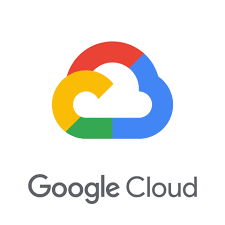
Google Cloud Platform (GCP)
![]()
![]()
![]()
![]()
![]()
4.5/5 stars
A high-performing cloud provider with cutting-edge services, especially for machine learning and analytics-heavy workloads.
Pros
- Strong AI and ML tools, including TensorFlow, Vertex AI, and TPUs.
- Excellent big data and analytics services, such as BigQuery and Dataflow.
- User-friendly interface and transparent pricing with sustained use discounts.
- Strong Kubernetes support (GKE was co-developed by Google).
- Deep integration with Google Workspace and open-source technologies.
Cons
- Smaller global infrastructure footprint compared to AWS and Azure.
- Fewer enterprise-grade services and support options.
- Less mature partner ecosystem.
- May lack the deep legacy system support some enterprises need.
- Documentation and onboarding support can be inconsistent.
The Bottom Line
GCP is an outstanding option for AI/ML-driven startups, data-intensive platforms, and SaaS products that need powerful analytics, real-time data processing, or scalable containerized infrastructure.
This page may contain affiliate links. Our assessments are grounded solely in the product’s merits and performance.
Key Features
- AI and Machine Learning Leadership: Tools like Vertex AI, AutoML, and access to Google’s TPUs give GCP an edge in deep learning and MLOps.
- BigQuery for Analytics: One of the most powerful serverless data warehouses, capable of analyzing petabyte-scale data in seconds.
- Open Source & Kubernetes Leadership: Google developed Kubernetes, and GCP’s GKE is considered the gold standard for container orchestration.
- Sustained Use Discounts: Automatically applied discounts for consistent usage, without needing reservations.
- Strong API Ecosystem: Easy integration with Google Maps, Firebase, Workspace, and Android development tools.
Key Services
Compute
- Compute Engine: Customizable VMs for flexible hosting and workloads.
- Example: A logistics startup hosts its real-time route optimization engine using high-CPU VMs.
- Cloud Run: Fully managed serverless container hosting.
- Example: A micro-SaaS tool deploys containerized services without managing infrastructure.
- Google Kubernetes Engine (GKE): Managed Kubernetes for orchestrating containerized applications.
- Example: A fintech platform runs microservices in GKE to easily scale and manage deployments.
Storage
- Cloud Storage: Scalable object storage for unstructured data like images, backups, and videos.
- Example: A media app stores user-uploaded videos across multiple regions for durability and speed.
- Persistent Disks: Block storage for use with Compute Engine VMs.
- Example: A game studio uses high-performance SSD Persistent Disks to reduce latency in gameplay.
- Filestore: Managed file storage for applications that need shared file systems.
- Example: A machine learning startup uses Filestore to share training data across compute nodes.
Databases
- Cloud SQL: Managed relational database service supporting PostgreSQL, MySQL, and SQL Server.
- Example: A booking platform uses Cloud SQL to store structured customer and transaction data.
- Firestore: Serverless NoSQL document database with real-time syncing.
- Example: A mobile app uses Firestore to manage user preferences and offline sync features.
- Bigtable: Scalable NoSQL database for analytics and time-series data.
- Example: An IoT company stores millions of sensor readings per minute using Bigtable.
Networking & Security
- Virtual Private Cloud (VPC): Isolated network environments to control IP ranges and firewall rules.
- Example: A B2B SaaS platform isolates its environments to separate staging and production traffic.
- Cloud Load Balancing: Distributes traffic across global regions for high availability.
- Example: An online learning platform uses global load balancing to ensure fast access for students worldwide.
- Cloud Armor: DDoS protection and WAF (web application firewall) for external applications.
- Example: A news site uses Cloud Armor to block malicious traffic during traffic spikes.
- Identity and Access Management (IAM): Fine-grained access control for cloud resources.
- Example: A development team sets IAM policies to restrict staging resources to engineers only.
AI & Machine Learning
- Vertex AI: End-to-end platform to build, train, and deploy custom ML models.
- Example: A healthtech startup trains a model to predict patient outcomes based on historical data.
- AutoML: Enables non-experts to train high-quality ML models using intuitive UI.
- Example: An e-commerce company uses AutoML Vision to automatically tag product images.
- Cloud Vision API: Pre-trained image recognition API for detecting objects and text.
- Example: A logistics app scans and parses shipping labels using the Vision API.
DevOps & Monitoring
- Cloud Build: CI/CD service for building, testing, and deploying code.
- Example: A productivity app automates its test suite and deployment pipeline using Cloud Build.
- Artifact Registry: Secure repository for storing container images and language packages.
- Example: A platform engineering team stores Docker images in Artifact Registry for use across teams.
- Cloud Monitoring: Collects metrics, dashboards, and alerts for GCP and app services.
- Example: A ride-hailing app uses Monitoring to track CPU usage and latency in real time.
- Cloud Logging: Centralized logging for GCP services and custom apps.
- Example: A DevOps team troubleshoots production issues by querying logs from multiple services.
Pricing
GCP uses a pay-as-you-go model with several pricing advantages:
- Sustained use discounts (automatically applied, no commitment required).
- Committed use contracts for additional savings.
- Preemptible VMs (up to 80% off for short-term workloads).
- Per-second billing on most compute services.
GCP’s pricing is often considered more transparent and flexible than AWS or Azure, especially for compute and storage. However, it can still get expensive at scale without careful cost monitoring.
Looking for discounts on GCP?
Check out our reviews of cloud discount providers and get up to 60% off your monthly cloud computing costs.
Pricing information is retrieved from publicly accessible pricing materials. The actual cost may vary based on specific plans chosen. Always check directly with the seller for the final quote.
Pricing information last updated January 23, 2025.
Credit Program: Google for Startups Cloud Program
Google Cloud Platform (GCP) offers a generous startup support initiative through the Google for Startups Cloud Program, designed to help early-stage companies build and scale using GCP’s infrastructure and tools.
Start Tier
- Eligibility:
- Technology startup not yet funded by an institutional investor.
- Founded within the last 5 years.
- Not yet received Google Cloud credits beyond the free trial.
- Benefits:
- Up to $2,000 in Google Cloud credits, valid for one year.
- $200 Google Cloud Skills Boost credits for online courses and hands-on labs.
- Access to the global Google Cloud Startup Community.
- 12 months of free Google Workspace Business Plus for new signups.
- Access to AI webinars and content
Scale Tier
- Eligibility:
- Received startup equity funding from pre-seed to Series A (if Series A, raised within the last 12 months) by an institutional investor or common Web3 funding sources.
- Founded within the last 10 years.
- Not yet received more than $5,000 in Google Cloud credits.
- Benefits:
- Year 1: 100% coverage up to $100,000 in Google Cloud credits.
- Year 2: 20% coverage up to an additional $100,000 in Google Cloud credits.
- $500 Google Cloud Skills Boost credits for online courses and hands-on labs.
- $12,000 USD in Google Cloud Enhanced Support credits for one year.
- Access to Google Cloud Startup Customer Engineers.
- Access to a Startup Success Manager and co-marketing opportunities.
- 12 months of free Google Workspace Business Plus for new signups.
- $600 monthly credits on Google Maps Platform for 12 months for new signups.
In addition to the basic start and scale tiers for general startups, GCP also offers additional programs for AI and Web3 startups. To learn more, check out our article, Google Cloud for Startups: What You Should Know.
Product Review
Google Cloud Platform stands out for its innovation, performance, and developer-first mindset. It excels in areas like AI, data science, analytics, and container orchestration. For startups that are building ML-powered apps, real-time data platforms, or container-native applications, GCP offers some of the most advanced and accessible tools on the market.
Users highlight GCP’s ease of use, clear pricing, and powerful analytics stack as major advantages. Its UI is modern and intuitive, and tools like BigQuery and Vertex AI allow teams to get powerful results with minimal setup. Google’s leadership in Kubernetes and open source is another major selling point for engineering-driven teams.
However, GCP does have a smaller global footprint and partner network compared to AWS and Azure. Support options may also be limited unless you opt into paid tiers. Enterprises with heavy legacy infrastructure or compliance requirements may find GCP less suited to their needs than competitors with more established enterprise tools.
Still, for startups that prioritize innovation, speed, and modern development practices, GCP hits the mark. It’s especially well-suited for companies building AI-first products, real-time analytics platforms, or serverless applications. The generous startup credit program and solid documentation make it a strong choice for early-stage teams looking to get off the ground quickly.
In short, GCP is best for data-driven, cloud-native startups and scale-ups looking to build fast, experiment freely, and scale intelligently.

Google Cloud Platform
![]()
![]()
![]()
![]()
![]()
A high-performing cloud provider with cutting-edge services, especially for machine learning and analytics-heavy workloads.
Key Services
Google for Startups
Continue on Google website
Similar Products

Azure
![]()
![]()
![]()
![]()
![]()
Microsoft Azure is an excellent choice for mid-to-large enterprises, regulated industries (like healthcare and finance), and businesses already using Microsoft products.

IBM Cloud
![]()
![]()
![]()
![]()
IBM Cloud is a smart choice for enterprises operating in regulated sectors, such as banking, insurance, government, and healthcare.

